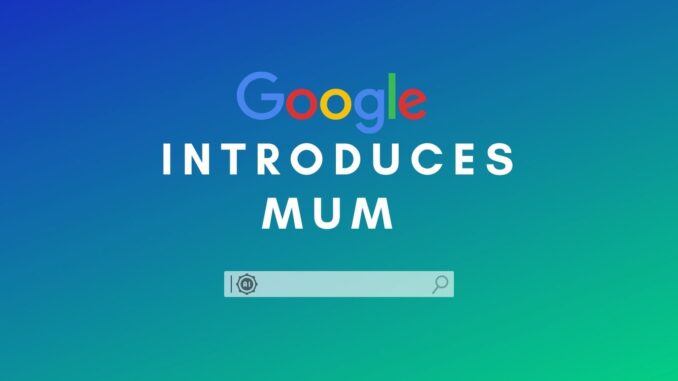
Google’s constant changes, updates and investment in Al to give you the most accurate and helpful results have reached a whole new level.
They have a new language model called MUM.
It is built on a Transformer architecture like BERT.
And MUM is supposedly going to be 1000x more powerful than BERT.
The difference between the two model lies in how much information each can process, all at once.
What Is Google’s MUM: Multitask United Model & Why Is It powerful?
According to Google, MUM will be able to handle several tasks, all at once.
It is trained across over 75 languages, allowing it to understand information better and generate richer results for user queries.
The technology is capable of changing the way Google helps you with more complex queries.
Key features:
According to Google, it will also be able to understand audio and video sometime in the future.
Delivering Better Results Than Ever Before
There is no doubt that Google is the best search engine at answering search queries.
But the idea behind MUM is to help you with more complex tasks.
They want to make things simple for you.
There are times that we can’t find the information we want, and to get the results we need, we perform multiple search queries.
MUM will have the ability to scan the entire web on a deeper level because of its ability to break down multiple barriers.
It can collect and bring information to you from multiple sources, written in different languages.
This makes a significant change in the way they access and process information and how we receive it.
So What Does It Really Mean For You?
If you thought Google was good at answering your questions today, wait until MUM gives you even better and more relevant and helpful results.
For now, Google continues to test MUM until they’re sure it is safe to bring the features and improvements to their products.
They want to avoid bias information and are carefully looking for patterns that indicate bias in machine learning.
What Does The Shift Towards Al Algorithm Mean?
How MUM will impact the overall search results remains unclear for now.
But it can completely change the way we perceive, create and consume content online.
Here is Google’s own example of how MUM can assist you with a more complex query:
A searcher wants to know how to prepare for hiking Mount Fuji in the fall.
 But what does removing the need for users to perform different searches and visit multiple websites to gather information really mean for website owners?
But what does removing the need for users to perform different searches and visit multiple websites to gather information really mean for website owners?
It could impact the way bloggers, journalists and all other content creators generate revenue through their website traffic.
And overall, it could change the way rankings work and how SEO is done to drive traffic to a website.

Leave a Reply